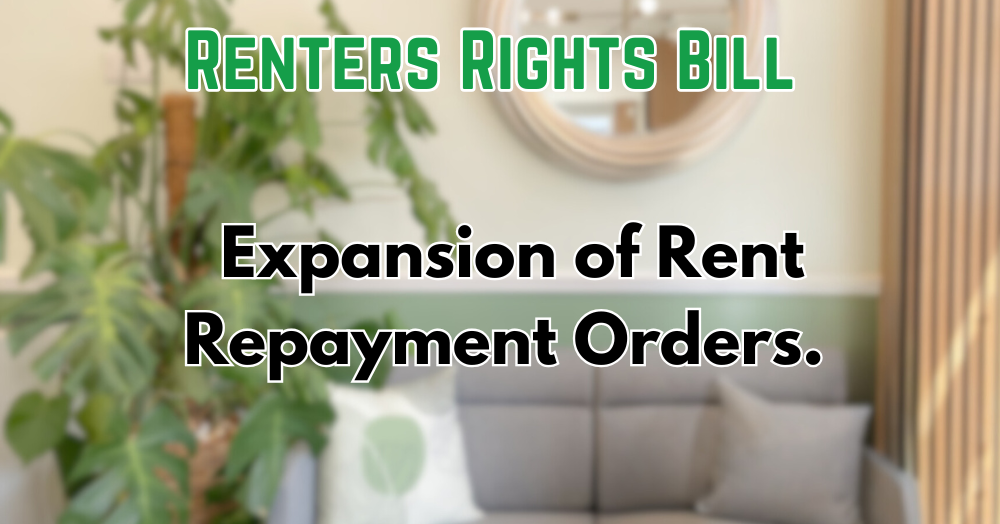
The Renters Rights Bill - An expansion of Rent Repayment Orders 💰
Rent repayment orders are a tenant-led enforcement tool to deter landlords from non-compliance . The orders are changing. The list of offences, the rent and the period to claim are all increasing. Read on to find out the proposals.
Rent repayment orders are a tenant-led enforcement tool to deter landlords from non-compliance and empower tenants to take action against unscrupulous landlords. The orders are also available to local authorities where the rent has been paid through Universal Credit or Housing Benefit.
The Renters Rights Bill will introduce a package of measures to strengthen rent repayment orders. The measures will increase the deterrent effect of rent repayment orders, make them easier and more appealing for tenants and local authorities to pursue and expand them to cover more of the sector.
The current orders
Currently a landlord who has committed an offence can be ordered to repay an amount of rent to the tenant or indeed the local authority. Tenants are able to apply to the first tier tribunal for a rent repayment order. If the first tier tribunal are satisfied that the landlord has committed the listed offences, then they have the power to order the landlord to replay an amount of rent. Local authorities are able to pursue a rent repayment order where such rent has been paid using housing benefit. The offences a rent repayment order can already be sought for include violence for securing entry, eviction and harassment of occupiers, failure to comply with an improvement notice, control or management.
The proposal
The bill will extend rent repayment orders to the offences of;
- Knowingly or recklessly misusing a possession ground
- Breach of a restriction on letting or marketing a dwelling-house
- Continued tenancy reform breach after imposition of a financial penalty,
- Continued breach of landlord redress scheme regulations after imposition of a financial penalty for this breach
- Provision of false information to the PRS Database when purporting to comply with PRS Database regulations
- Continued failure to register with the PRS Database after imposition of a financial penalty for this breach.
The maximum amount of rent a landlord can be ordered to pay will double from 12 to 24 months, increasing the deterrent effect of rent repayment orders and making them more appealing for tenants and local authorities to pursue.
The period in which a tenant or local authority can apply for a rent repayment order after the offence from 12 to 24 months, making them easier for tenants and local authorities to pursue and helping prevent them from being timed out.